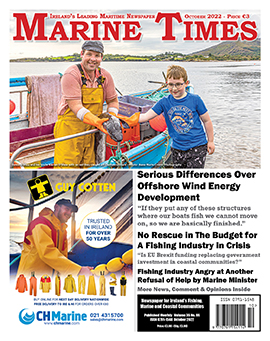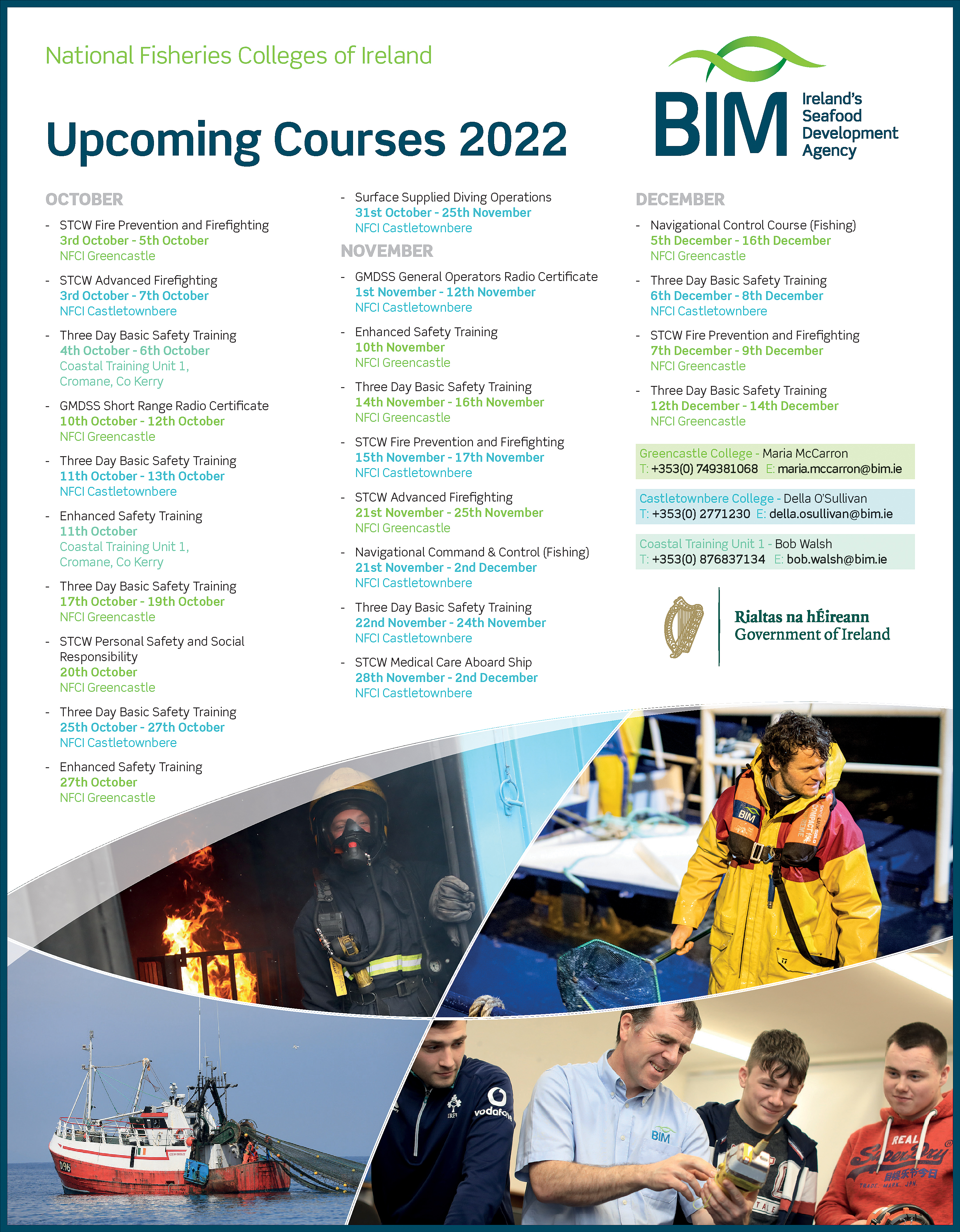Irish Fish Processors and Exporters (IFPEA) Express Concerns at Rate and Scale of Proposed Off Shore Energy Projects
At the Annual General Meeting of the Irish Fish Processors and Exporters Association (IFPEA) held in Dublin on the 12th October, members expressed concern at the rate of new projects for off shore energy being proposed and the massive scale of some of these projects. While at the same time there is absolutely no statutory process to insure adequate public consultation or to afford the rights to the fishing industry that no displacement takes place and jeopardise their livelihoods.
The fishing industry are keenly aware of the need to secure additional energy supplies and increase our renewable capacity as a country, but we must not do this at the cost to the Irish fishing industry or our coastal communities. In fact, the fishing industry themselves are extremely high energy users, that being said we need to be mindful the seas around Ireland are the working place for many, and from these seas over 16,000 fishing industry jobs depend on it.
The recently published Government benchmarks for off shore energy, are placing massive pressure on fishing grounds. The following is an indication of the scale being looked at or the real targets being set.
- The Irish government has increased the 2030 offshore wind target from 5GW to 7GW.
- Existing Capacity Arklow Offshore Irish Sea Windfarm / Turbine Array: 25 MW, using this as an example the following two points sets the context of where we are heading.
- Target Offshore Wind Capacity 2030: 7 Gigawatts equal to 280 Times Arklow Windfarm Capacity
- Target 2050 ORE = 30 Gigawatts equal to 1200 Times Arklow Wind Farm Capacity
The IFPEA are extremely concerned that with the massive focus initially on the Irish Sea and southeast, that wholescale displacement of fishing grounds could well take place, and with the absence of a regularised structure for proper planning and consultation that valuable fishing grounds could be impacted and worse lost for all time.
Renewable energy is the future this is not disputed, but we must be mindful of what we experienced first-hand on land with multiple wind farm sites across Ireland; unless you have robust procedures and processes in place the environmental impacts of these renewable projects can be worse than the energy they end up ultimately providing.
The current regime regarding these off-shore energy projects is haphazard and bordering on the absurd, whereby vast areas of sea bed are earmarked and little to no real or comprehensive consultation is undertaken, withstanding that the fact that no proper planning procedures exist at present.
That is respective of those that wish to invest in these projects, those that are currently earning an income from the sea, our coastal communities or the general public at large. With the continued absence of a structured and transparent planning process for all of these off-shore energy projects, the immediate outcome is going to lead to growing tension.
All of this can be avoided if a framework or process is put in place; like any other project within the state that is subject to planning, there are defined procedures which must be followed.
All of this needs to be part of a statutory process that affords the same rights to all parties and is completely impartial in its final determination. At present this is totally lacking concluded the IFPEA.




.jpg)
 Facebook
Facebook Twitter
Twitter